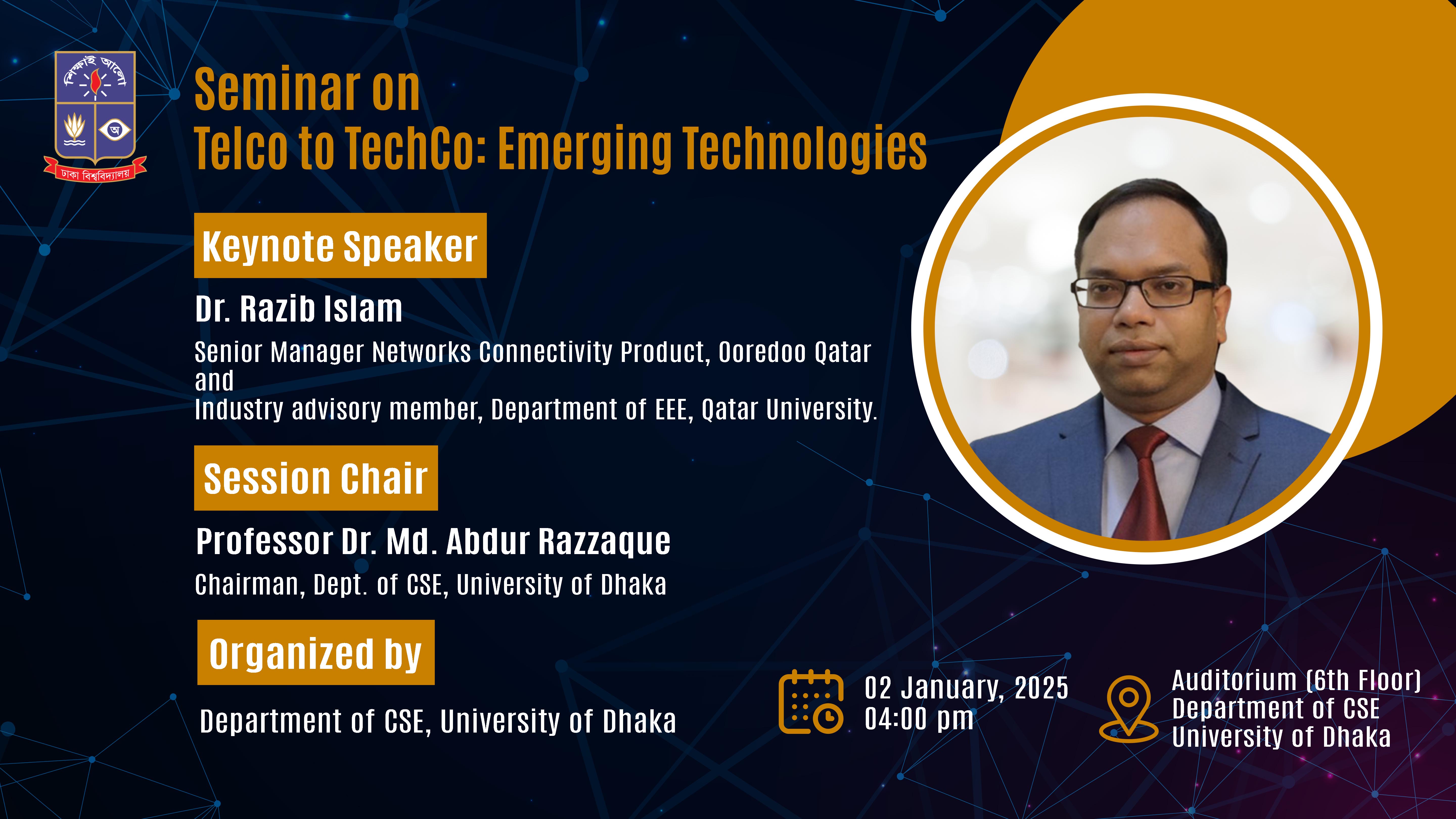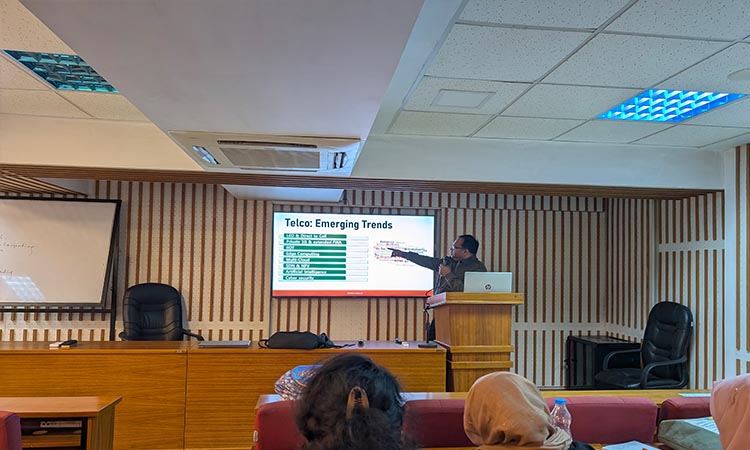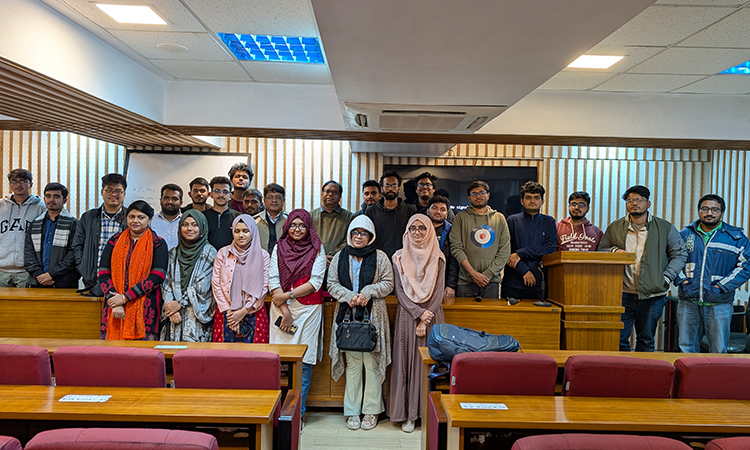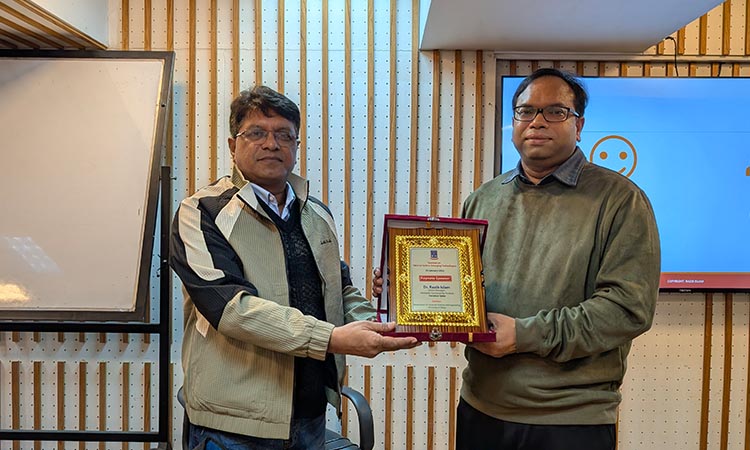
Seminar on From Telco to TechCo: Exploring Emerging Technologies and Industry Transformation
02 January, 2025: On 2nd January 2025, the Department of Computer Science & Engineering, University of Dhaka, hosted another seminar titled “Telco to TechCo: Emerging Technologies” at its auditorium. This seminar was conducted by Dr. Razib Islam, Senior Manager of Network Connectivity Products at Ooredoo Qatar. The event focused on the transformation of traditional telecommunication companies (Telcos) into technology-driven companies (TechCos), exploring emerging technologies and their applications in the evolving industry landscape.

Dr. Razib Islam began the seminar by outlining the key trends shaping the telecom industry, such as the integration of Low Earth Orbit (LEO) satellites, private 5G networks, Internet of Things (IoT), and edge computing. He explained how these technologies are driving innovation, offering faster connectivity, and supporting a wide range of applications. A detailed comparison of LEO providers, such as Starlink, OneWeb, and AST Space Mobile, illustrated their capabilities, including latency, coverage, and target customers.
A significant portion of the seminar was dedicated to private 5G networks, which are designed to offer secure, customized connectivity for enterprises. Dr. Islam elaborated on their applications in industries like oil and gas, where private networks enable advanced predictive maintenance, drone navigation, and real-time video analytics for worker safety and incident detection. He highlighted how such networks can address ultra-reliable low-latency communication (URLLC) needs that traditional LTE or Wi-Fi cannot meet.
The seminar also explored the future trajectory of telecommunication with the advent of 5G and 6G technologies. Dr. Islam discussed the leap toward more sustainable networks, emphasizing energy-efficient components, green energy solutions, and fully recyclable hardware. He linked these advancements to broader industrial shifts, such as Industry 5.0, which focuses on integrating human and machine collaboration powered by IoT, edge computing, and AI.
Transitioning from Telco to TechCo was a central theme of the seminar. Dr. Islam described how traditional Telcos are moving beyond connectivity to offer cloud-native services, software-defined networks (SDN), and network functions virtualization (NFV). These technologies enable flexibility, scalability, and cost efficiency, positioning companies to meet growing customer demands for tailored, high-value digital services.
Dr. Islam also addressed the challenges faced by Telcos in this transformation, such as competition from over-the-top (OTT) platforms and hyperscalers, as well as the need for automation and software-driven solutions. He outlined strategies for success, including adopting advanced robotics, distributed cloud systems, and leveraging APIs to enhance network capabilities and create new revenue streams.

The seminar concluded with a Q&A session, where students engaged actively, seeking insights into the future of telecom technologies and the skills required to thrive in this rapidly evolving field. Dr. Islam encouraged students to explore opportunities in emerging areas such as edge computing, IoT, and AI, emphasizing their critical role in shaping the future of connectivity and technology.

Overall, the seminar provided a comprehensive overview of the ongoing transformation in the telecom industry, inspiring attendees to consider the exciting possibilities of contributing to this dynamic field.